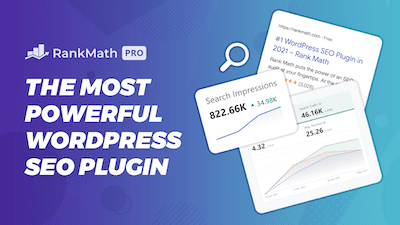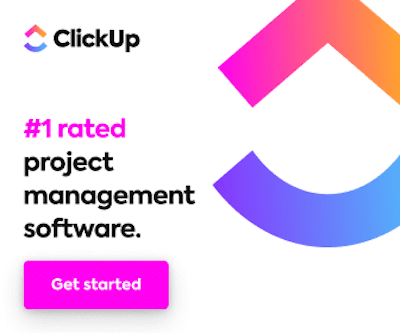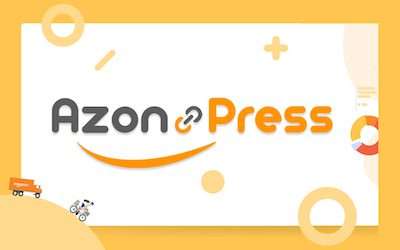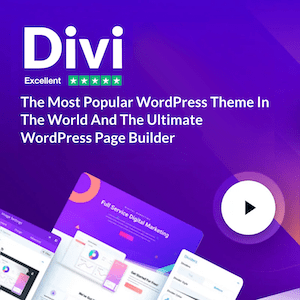All right. So you have a website and want to ensure it shows up on Google somehow, but you don’t know how to do that. Well, that’s where search engine optimization comes in—also known as SEO. Unfortunately, understanding SEO can sometimes be tricky, especially if you’re not very computer savvy or don’t know too much about tech. But that’s fine because you don’t need to know much about tech to understand SEO.
SEO is an extremely simple thing. Unfortunately, we tend to complicate it. So in this post, what I’ll be doing is explaining SEO in a way that is very simple and easy to understand. I will not go into anything very complicated, confusing, or technical—just the basics.
So hopefully, if you have a business or you’re launching a product or a store that you want to launch online, you can understand some of the best practices for you to follow. I won’t go into specifics about how to do these things; instead, I’ll provide a high-level overview.
What is SEO?
- SEO stands for “search engine optimization.” So it’s ensuring that our content, website, or blog looks as good as possible to Google.
- SEO is a sub-topic of digital marketing. My favorite definition for SEO is implementing strategies and tactics to improve ad websites, web pages or web pages, and rankings on search engines.
- SEO is a long-term gameplay. It’s not something you’re going to apply to a website overnight and see immediate results. It takes time.
- SEO is a very fast-growing industry. If you search LinkedIn, you’ll find there’s just no shortage of jobs for SEO professionals.
There are a few other search engines out there, but we’re not going to go into that. And also, in the United States, Google has a vast majority of the market share. So we tend to focus on Google, not to mention that they have so much free software that they give us that we can use, like Google Analytics and Search Console.
So we tend to focus mostly on Google, but there are other search engines, especially if you’re abroad. The point is that search engine optimization optimizes the page to be more favorable for Google.
Why is SEO important
you might have a boss on the fence about investing in SEO, or you have a business but don’t know if investing in SEO is the right move for you. If that’s the case, here are a few reasons SEO matters for every business.
1. Everyone searching
Search is a primary source of online Traffic for almost any website. Everyone’s searching for something. Thus, most websites get Traffic from people searching for things on a search engine.
2. Free Traffic
So, why is SEO important? You could get paid ads, right? Well, there are a couple of downsides. First, you’d have to pay a lot of money to do that, whereas SEO, or showing up organically, is completely free.
Traffic from SEO is 100% free. You’re not paying for a single ad. People naturally come to the website because they type a question, and the search engine gives them that answer.
3. Control your first impression
This is a good way to control your first impressions. For example, you might lose credibility if you have a website like Joe’s home improvement store, but a potential visitor searches for you and doesn’t see you on the results. Simply put, it’s not a good look, you seem like you’re not a real business if you’re not on google’s index.
4. Become an industry leader
You can quickly become an industry leader by leveraging your google rankings. If you rank #1, Google says you are the most authoritative source on this topic.
5. Keyword Research can reveal industry insights.
Performing keyword research can reveal industry insights you might never have known. You may find that people were searching for words you had no idea they were searching for.
6. People are searching for your solution
Not only that, but when you appear organically on a search engine results page, the people who search for that topic, or whatever keywords they use, are more likely to want your service or product or to visit your website. So if you’re serving ads to them, they want to be there as opposed to an ad, or, you know, they don’t necessarily want it if they didn’t search for it, but when they’re searching for it, they’re looking for something. And you might have the answer, and you might have an opportunity to convert someone.
7. Nurture potential customers with helpful content
It’s a good way to nurture potential clients and customers with information. On a marketing funnel, awareness and interest are at the top,, and conversion is at the bottom. SEO allows you to grab people at the top who are just looking for a solution for their problem.
They’re not ready to buy, and keep providing them information until they eventually convert. The Traffic for SEO is the best Traffic you can get because those people are actively searching for a solution to their problems. This is how you turn a cold lead into a warm one with value-filled content.
8. Contend with your competitors
It’s also extremely important because all your competitors will be doing SEO. So they will want to show up higher in the search engine results, and the more attentive they are to the best practices, the less likely you are to show up for anything.
If they’re doing all the best things, and you’re not doing anything for SEO, you might have trouble showing up. Thus, you won’t appear organically when somebody wants to solve the problem your product or business solves.
So that’s a little bit of why SEO is important.
How exactly does SEO work?
Now. How exactly does SEO work? I’m going to make it very simple. Crawlers are tools used by search engines. And what crawlers do is go from link to link, discovering new pages. So if your website’s homepage has three pages, it’ll follow those three pages. And then, if those three pages have three links in them or two links, it’ll follow those two links until it hits a dead end.
And that’s where it stops discovering new things. So once the crawlers identify all those links, how they’re structured, and where they go, they take that information and bring it back into their index, like their database.
Your website gets crawled by the robot’s crawlers, and the information is stored in a library.
Then and there, it starts to rank. So how something shows up first is based on many, many, many ranking factors. You know, at some point, we see our community settling on over 200 ranking factors. However, Google is now using a lot more machine learning, and determining a factor has become extremely difficult.
Google is now using user input and repetition to learn what users want to do. So it’s increasingly harder to crack Google because no one knows what it’s thinking. After all, it’s a machine that consistently learns based on interaction. So ranking and understanding how to rank can be complicated, but it’s not impossible.
So that’s the basics of how the search engine works about organic search.
How do you do SEO?
So how do we do SEO? SEO professionals wear many hats, and the list of things we “do” in SEO is extensive. This introductory guide will cover just three to keep things simple.
Technical analysis.
We do something like technical analysis, which will let us check if there are any bugs or problems on the web page. For instance, we must ensure that Google can even access our pages. Page speed is another good example of something to look out for when conducting technical analysis.
Do you need to know how to code to do SEO?
If you don’t know how to code, the good news is that you don’t need to know how to code to do SEO. It helps to understand “code,” and you will need a basic understanding of when the right code is on the page. But you don’t need to write a single line of code for SEO.
What are keywords?
So before I move on, I have to talk a little about keywords. So what are keywords, keywords are the words on your article that you want to match with a search term?
When I say “article,” I mean anything on your web page that you want to match to a search term that someone searches on Google. So if you are searching for the best kitchen knives on Google and your keyword is “premium kitchen knives,” Google is going to be able to take the search term and the keyword and say, “Okay, this person has or this article has the term “premium kitchen knives” several times throughout the article, It seems like this is a pretty relevant article to the search term.” So we’ll say that this is probably what the user wants.
Keyword research.
SEOs will do what we call keyword research, essentially, we are finding out what people are searching for and how often people are searching for those terms so that we know if it’s worth investing time in writing that content or publishing that article, etc.
Matching the searcher’s intent is also important in keyword research. Matching searcher intent means ensuring that when Google shows whatever shows up on the page is what is the web page that we’re trying to publish. So it’s relevant to what the searchers want to see.
Where to put keywords?
So with that said, some of the motivations we can do are making sure that we have that search and that we have those keywords in critical places.
First paragraph
First, we want to ensure that it’s on the first paragraph of our article.
URL
We want to make sure that it’s in the URL. Preferably, it doesn’t have to be, but you know, best practice.
Title
You want to make it a point to include that in your title. You’re already lost if your article doesn’t have the keywords in the title of the thing you want to show up for you. How does the user even know if this is relevant to them?
Publishing content
You’re going to be publishing a lot of pages when you’re doing SEO, you’re not necessarily going to be writing the pages yourself. Someone else might do it, but you’re going to be thinking about publishing strategically. You will also need to know the best practices for writing content on the Internet so you can advise the writers on optimizations. Writing for the Internet differs from writing for a print magazine or newspaper. For example, a giant column of text with little to no visual breaks doesn’t work well for the Internet.
How to get indexed
You want to be indexed. So the first step is: how do you get your website indexed? How do you get Google to notice your website? It takes some time if you have a new website. But fortunately, Google does send crawlers out frequently. So at some point, your website will get indexed.
It’s pretty easy once you understand what Google’s goal is: to provide the most relevant and accurate information to anyone searching for it. All right. So let’s bring it back to the main question.
SEO is common sense in action
SEO is ultimately about common sense. I think that’s what I want to boil this all down to because everything I’ve been saying may sound a little technical, but it is just common sense. Does your content or your article serve to answer the question and serve the user? How does it help them?
Because if it does, you will naturally start ranking for that, so long as there isn’t better content competing against yours. You could write a really good five paragraph article on what the best kitchen times are, the best and worst phone cases are, or something like that.
But if someone else wrote a better review on the best kitchen knives with images and graphs showing the different types of metal used in some kitchen knives, that’s a much better article than the five paragraphs with no image or something like that.
So, if you’re creating thin, small content, think twice. Google will favor the one that best satisfies the user’s query over yours. That’s just, again, common sense. So I like to think that we complicate SEO and try to come up with flashy things for everything content, silos, and stuff.
The point is that SEO is just about common sense. If you have the most relevant, most accurate article, post, or piece of content about that topic for a user when they search for that thing, then you’re doing well in content creation. There are a ton of technical SEO things. There are many on-page SEO things, a lot of backlink outreach, and stuff like that, but starting with the basics of content is the best place to start.
Are you a visual learner? Then, check out my video below, titled “What Is SEO? (For Beginners)” from my YouTube channel, as I show you all this firsthand.
Frequently asked questions (FAQ)
Do you still have questions? Below are some of the most commonly asked questions about SEO.
What is SEO, and why is it important?
SEO stands for Search Engine Optimization, optimizing a website to rank higher in search engine results pages (SERPs). This is important because a higher ranking leads to increased visibility and Traffic to a website, which can drive more leads and sales for a business.
What are some best practices for improving a website’s SEO?
Some best practices for improving a website’s SEO include: conducting keyword research, creating quality content, optimizing website structure and tags, building backlinks from other websites, and regularly monitoring and adjusting your strategy.
How do search engines determine the ranking of a website?
Search engines use complex algorithms to determine the ranking of a website. These algorithms consider numerous ranking factors, such as the quality and relevance of the website’s content, the structure of the website, the number and quality of backlinks, and user behavior metrics such as click-through rate and dwell time.
Conclusion
That concludes this article. What do you think? Let me know in the comments below (I read and reply to every comment). If you found this helpful, check out my full blog and subscribe to my YouTube channel. Thanks for reading!








